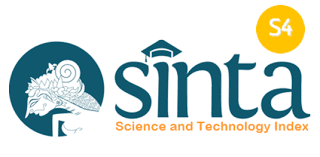Artikel (30)
This study aims to describe the barriers of class VII science educators in implementing the K13-revision in the Bandar Lampung Municipality. The sample of this study were all VII grade science educators who applied K13-revision learning. Sampling technique was that purposive sampling. Data were obta...
Jurnal Bioterdidik: Wahana Ekspresi Ilmiah; Vol 7, No 2 (2019): Jurnal Bioterdidik; 13-23 | 2019
This research aim to determine the use of PBL models in increasing collaboration skills and high order thingking of student. The design used was nonequivalent pretest-posttest control group design. The population of research were all students of Senior High School an X grade Bandar Lampung. The rese...
Jurnal Bioterdidik: Wahana Ekspresi Ilmiah; Vol 7, No 2 (2019): Jurnal Bioterdidik; 24-34 | 2019
This study aimed to determine the effectiveness of U, chevron and theater seating formation on student learning outcomes in the subject matter of the plant tissues in Senior High School 3 Metro. The population was XI grade science students and samples were XI science 1, XI science 2, and XI science ...
Jurnal Bioterdidik: Wahana Ekspresi Ilmiah; Vol 7, No 2 (2019): Jurnal Bioterdidik; 1-12 | 2019
Penggunaan Discovery Learning dalam Meningkatkan Keterampilan Kolaborasi dan Berpikir Tingkat Tinggi
This research aims were to explore information about the use of discovery learning model in improving students’s collaboration and high order thinking skills (HOTS). The design used was a quasi experiment with nonequivalent pretest-posttest control group design. The research sample of this study w...
Jurnal Bioterdidik: Wahana Ekspresi Ilmiah; Vol 7, No 2 (2019): Jurnal Bioterdidik; 93-102 | 2019
This study aimed to determine the different self-efficacy between males and females students and the correlation between self-efficacy based on gender with sciences learning outcomes. This study used descriptive correlational design. The samples were VIIIgrade students at SMP in Labuhan Ratu Region ...
Jurnal Bioterdidik: Wahana Ekspresi Ilmiah; Vol 7, No 2 (2019): Jurnal Bioterdidik; 75-82 | 2019
This study aims to determine the effect of PBL on student collaboration and high-order thinking (HOT) skills. This study was a quasi-experimental with non-equivalent pretest-posttest design. The sample of this study were students of Senior High School 3 Bandar Lampung X MIA 2 (experimental group) an...
Jurnal Bioterdidik: Wahana Ekspresi Ilmiah; Vol 7, No 2 (2019): Jurnal Bioterdidik; 35-45 | 2019
The low level of generic skills in biological science of students is due to the learning process that has not developed these abilities. This research is quantitative research with 2x3 factorial design. The sample was chosen by class random technique. Data collection techniques with tests, questionn...
Jurnal Bioterdidik: Wahana Ekspresi Ilmiah; Vol 7, No 1 (2019): Jurnal Bioterdidik; 72-84 | 2019
This study aims to produce practical guidebook of human respiratory system with ADI model for junior high school student. The design of this research was R&D with 4-D model included define, design, develope, and dissaminate, this research was only until the develop step. The result of this study was...
Jurnal Bioterdidik: Wahana Ekspresi Ilmiah; Vol 7, No 1 (2019): Jurnal Bioterdidik; 62-71 | 2019
This research was conducted to find out the effect of Adiwiyata program and the environmental care attitude. Research design used was ex post facto. Sampling technique used was purposive sampling, there were 106 students taken as a samples from 30% population. Research data were obtained from test a...
Jurnal Bioterdidik: Wahana Ekspresi Ilmiah; Vol 7, No 1 (2019): Jurnal Bioterdidik; 32-42 | 2019
This study aims to determine the effect of discovery learning on activities and cognitive learning outcomes of class VIII students of SMPN 1 Pugung Tanggamus in "Human Digestive System" materials. The study sample were 50 students of class VIII that were selected through cluster random sampling tech...
Jurnal Bioterdidik: Wahana Ekspresi Ilmiah; Vol 7, No 1 (2019): Jurnal Bioterdidik; 11-21 | 2019


